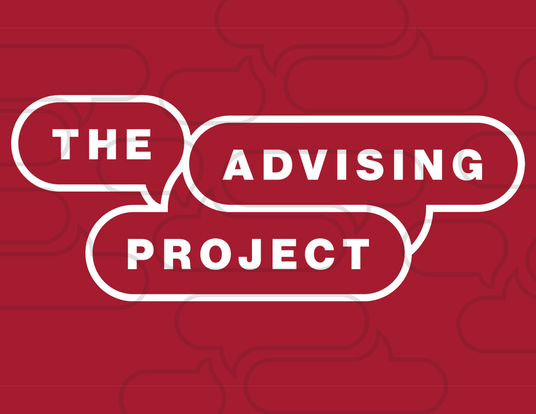Since its launch, The Advising Project has engaged in conversations with students, faculty, and administrators across programs about what constitutes effective advising. Following these discussions and review of the academic literature on advising, we have generated five recommendations for effective advising (listed below). We suggest that faculty, students, and graduate programs engage with these practices to enhance advising experiences across Harvard Griffin GSAS. Each practice is followed by quick tips and questions meant to spark discussion. Over time, small changes can make a big difference.
Create a Respectful and Inclusive Environment
Graduate programs and research groups should promote a climate in which all students and faculty can thrive. Power dynamics should be acknowledged openly: Faculty should be especially sensitive to these dynamics and should provide support to advisees as developing scholars and unique individuals. Graduate students should be similarly aware of the power dynamics in their roles as teaching fellows or mentors to other students. All community members should work to create an environment in which each individual is supported and feels a sense of belonging.
- Be Present. Simply showing up—physically and mentally—is a really meaningful way to build a sense of community. Advisors and students can both assess what kind of events they attend and how regularly. Are there colloquia or social gatherings that your advisor/advisees really wished you attended more often? Consider working together to make a list of events that are high priority to attend. Limit distractions during meetings and ask follow-up questions to show you are listening actively and fully.
- Meet Someone New. Advisors and students can both work on getting to know their broader department or program community. Advisors, introduce yourself to a student whose work you don’t know. Students, ask a faculty member in another sub-discipline to go for coffee—bring a friend if you’d like! You may find a potential new mentor.
Clearly Communicate Expectations
Students and advisors should engage in transparent, recurring conversations about expectations and outline their mutual expectations in areas that include frequency of meetings, communication preferences, and response times for written feedback. Oral or written agreements of mutual expectations can be used to make hidden expectations explicit, thereby limiting assumptions that could derail the advising relationship. Milestones should be clearly communicated and included in program materials, and progress towards the degree should be regularly reviewed by students, faculty, and programs.
- Know Your Style. Advisors, how would you describe yourself as an advisor? Are you a facilitator? A cheerleader? An advocate? Are you involved in the day-to-day or do you prefer a big-picture view? Students, what have your past advising relationships looked like? How do you hope your graduate school advising relationships will be similar or different?
- Anticipate Idiosyncrasies. Advisors, brainstorm some of the particulars of your lab, advising group, or department that are second nature to you. What aspects of the program might surprise new students? Students, generate questions after reviewing your department or program’s handbook and draw on institutional knowledge to clarify expectations. What has worked well or not so well for upper G-years?
Engage Multiple Mentors
In addition to the primary advisor, students at all stages of their graduate career should be supported by an advising village that includes multiple mentors. Faculty and staff should support students in identifying additional mentors to meet their academic and professional goals. These individuals may include secondary advisors, committee members, directors of graduate studies, or staff members.
- Build a Team Together. Advisors, who from your network—in your department, at Harvard, in your field writ large—can you connect with your advisees? Students, who might your advisor introduce you to via email or at a conference?
- Think Beyond Faculty. Students, remember that potential mentors are all around you. Take that helpful librarian for coffee and pick their brain. That office assistant might have experience with what you’re going through. Advisors, what mentoring relationships have you benefited from during your career? Consider sharing these stories with your advisees.
Promote Professional Development
Students should be provided with the support and tools needed to develop the skills required to successfully navigate their graduate careers and to prepare them for their chosen profession. Faculty and staff should support career exploration and identification of relevant career resources.
- Acknowledge Insecurities. The “What’s next after you graduate?” question can be nerve-racking for anyone. Advisors, validation can go a long way: students can draw enormous comfort from hearing you acknowledge that the academic job market is tough and that you will support them as best as you can. You might assist them with publishing, share job ads, or recruit or recommend them for conferences. Students, your advisor may have no experience applying to law school or finding a government job. Identify specific, manageable ways your advisor might help you like attending a Mignone Center for Career Success webinar together and discussing afterward.
- Compare CVs. Advisors, what do you see that’s missing in your student’s CV? What should they prioritize for this term? The next year? Students, your advisor’s CV is likely overwhelmingly impressive, but know they didn’t accomplish it all in one day. What’s one aspect of their work you admire and want to focus on now? What trends has your advisor noticed that might impact your short- or long-term goals?
Foster Well-Being
All members of the community should foster an environment that encourages appropriate care for each individual’s mental and physical health. Faculty should engage in active listening, keeping in mind that many students have expressed that they are not comfortable opening up about their challenges. Advising can encompass a range of conversations, and although not every advisor will be able to talk in detail about every issue, they should be responsive when an advisee expresses a need for support in the areas of mental or physical health. Harvard Griffin GSAS and University resources can help.
- Know Your Options. Advisors, familiarize yourself with the various Harvard Griffin GSAS offices and resources, including the Harvard Griffin GSAS Crimson Folder, and spend a little time exploring websites so you have a sense of what options to recommend to students. Look out for and engage with communications from your program or department’s Director of Graduate Studies. Students, if you feel comfortable, share what resources have worked for you with your advisor, such as a writing group or career workshop, so they can share tips (anonymously) with other advisees.
- Check In. Advisors and students can both signal that they care for their advisees/advisor as people by asking questions about their lives beyond academia. Not everyone will want to engage and that’s okay: remember that no two advising relationships will look the same. Each advisor/advisee pair will need to find their own unique balance.
Reach out to The Advising Project to share an advising experience, ask questions, or get information about mentorship presentations and skill-building workshops for your community.





